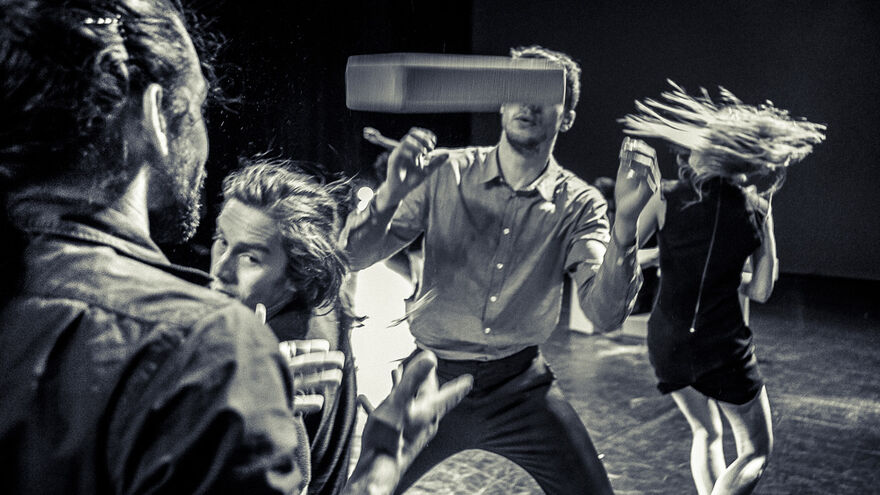
Behind-the-scenes with Ultima Vez/ Wim Vandekeybus
In 1987 What the Body Does Not Remember, the debut work from Wim Vandekeybus and Ultima Vez, stunned the world of dance. Almost three decades later and with a new cast, the show still stands as one of the most exciting pieces of dance ever made. See it here at Brighton Dome this February. Watch the trailer for this ‘brutal confrontation of dance and music' and experience a taste of 'the dangerous, combative landscape of What the Body Does Not Remember’...
If that’s got you gripped, then take a look at this video - Wim Vandekeybus talks us through What The Body Can't Remember and what you can expect from it here this Feb at Brighton Dome.
Enjoy a little a peek behind-the-scenes and discover what it's like working with Wim Vandekeybus ahead of the UK tour.
And finally, here are a few words from the man himself about the drive behind the piece:
‘I met [composers] Thierry de Mey and Peter Vermeersch, and I knew the piece was going to be called What the Body Does Not Remember, about instincts, about what is not thought, about the reflexes that people lose, about the alienation of human society. Where people living in a city of a million would come home in the evening and say, ‘nobody touched me, nobody affected me’, and it made me wonder where we were going. If we needed our instincts to survive we would die because we don’t use them anymore. I was fascinated by what the body has to do, without having a choice. Where the survival instinct has to return, using our instincts and reflexes, what the body has to do to find its way out. It’s good to work with risk and that’s mainly what stimulated me. At school we only went to see one or two dance pieces, and they felt so fake.
For What the Body Does Not Remember I wanted to do something where the necessity of the movement is understandable for the audience. And so, of course, in the piece when we came to throw the big stones, you realise that a movement has to happen, otherwise there will be an accident. So the intensity is more important than the meaning. The intensity of what it provokes. People don’t over react and play the drama, the drama is in the movement. You hit someone without the desire to kill them. You go to hit, and the other person tries to avoid it. It’s like playing the game with an open flat hand on a table and stabbing quickly in the spaces between the fingers. It’s a game. And, why?... because when you trust each other, you can do it. But you play with the timing – and so you avoid each other, a clash or an accident. In movies it’s all fixed and choreographed; here, it’s also choreographed, but it’s more like an action movie’
(Taken from an Interview by DTP’s Education Consultant, Anne Colvin)
